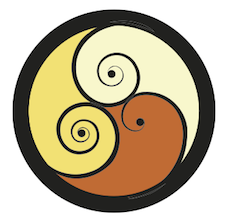Telugu: Sadasiva Rao Kodali
Ever since Colonel Franklin Howard got up from bed that morning, he was having severe headache, as if thousands of people were hammering his head continually. A terrible hangover!! bloody hell!!
The previous night, all the British Officers gathered at the Officers’ Club had tried to drain out their fears, apprehensions, loneliness, and helplessness that had seized them of late in a drinking spree. But it was in vain. The experiment was a failure. Useless! But they could not help it.
For the first time in the Officers’ Club mirth and laughter was missing. Nobody was in a mood to cut jokes. That was an unbearable lonesome evening! A silent evening!! The longest evening in their lives!!!
Bearers were taking orders as usual with customary humility. They knew why the British Officers were like that. All the servants had already known that their country was going to be free and the British Officers were not going to govern them anymore. Of course, they did not exactly understand what was meant by that but were very happy like any other citizen.
There was a festive mood everywhere, but nobody knew its meaning. Few people knew that, as far as India was concerned, it was a very important historical event, and that the attention of the whole world was glued to it and historians were analyzing the events. And it was for the very reason, nobody could exactly gauge what was going to happen. And even if they knew, they could not venture any guess.
The English Officers at the British Army Officers’ Club at Bombay were behaving rather eccentric. Captain Marshall who always used to be jovial and amuse people with his vulgar jokes was gloomy and silent today. Cricket buff Major Reynolds was utterly silent and looking into the whisky glass in front of him. He had already finished six rounds. Bearers were aghast. Their worry was that he might throw up and collapse there if he were to take two more pegs. The rest of the British officers, in a curious contrast to their habits, were sitting in the Club verandah and watching the glittering setting sun.
As darkness set in and lights were put on, there came some change in their mood.
“Ram Singh!”
“Ji Sahib!”
“Whisky and Soda!”
“Theek Hai Sahib!”
“Dekho Ram Singh!”
“Saab?”
“Rum and water!”
“Achchaa Sahib!”
It was completely dark outside. That day there was not a player on the golf course. Caddy boys were sitting idle and chatting among themselves. Tennis courts were empty. As night fell, they removed the nets and markers and put out the lights.
Officers were occupying cane chairs randomly and sipping their drink silently and alone.
All the ladies were confined to their homes and were busy packing up their luggage.
It was silence… silence… and silence everywhere.
That was 14th August 1947.
India was going to be free the next day. In fact, it was going to be independent that very midnight.
Lord Mountbatten and Lady Edwina had already prepared the ground for the historic event. Jawaharlal Nehru was going to assume charge as the First Prime Minister of India that midnight. Crores of Indians would be liberated from the British rule. The dream of Mahatma Gandhi and other great leaders was going to come true. This event was going to change the lives of people forever.
But most important of all, the status of the British who ruled the country was going to turn upside down!
Once rulers!
They would lose their power from the following day and become common foreign nationals and had to return to their country like the vanquished.
They must go!
They could not help it!
Colonel Howard never expected his last days in office would turn out like that. He never expected such a day would dawn. He used to cut jokes on Indian political leaders fighting for freedom. There was satire, ridicule, scorn and derision behind them.
“Half-Naked Fakir” was Gandhi’s nickname.
They used to sing parodying “Vande Mataram” into a booze-time song of bawdy phraseology.
But the history unfolding before their eyes had dented their convictions. Wiping out all their faith and confidence and disproving their coveted beliefs that “Half-naked Fakir” was victorious. It had shattered their self-confidence totally. That Gandhi had vanquished them was an irrefutable fact!
The worst of times befell on British Empire.
It was the beginning of its end.
Their golden age had passed.
They were past once for all.
That night was their last!
A frightful dark enduring night!
While some of them suffered from insomnia following their boozing spree the previous night, of the few who could sleep, suffered from nightmares.
*
Bearer Kaluram woke up Colonel Howard as usual.
There was steaming hot tea on the table. He felt rejuvenated. With burning eyes, quivering temples and uneasy tummy his condition was horrible.
He opened his eyes and looked inquiringly at the bearer to gauge if there was any perceptible change in his behaviour. He could see a bright streak of confidence in bearer’s eyes. Howard thought that he was thinking too much.
He was his servant all these years.
The relation would snap that day.
“Good Morning Sahib!” greeted bearer Kaluram.
“Morning Kalu!”
Bearer handed him a mugful of steaming tea to his hand. He felt so awful in his ears he felt as if four band-troupes were playing there simultaneously. He fell back on his bed after taking tea.
“My lord!” Howard moaned meekly. After taking the hot tea, he felt somewhat relieved of the echoes in his ears.
Kaluram poured another half-mug tea.
He got up and took that half mug.
Kaluram was standing looking at him.
“Sahib! There was parade today! Madam has asked me to remind you,” he said.
Great Scot! True! British Army had to handover the charge formally. And he had also received orders from Army Headquarters commissioning him to command that parade. He almost forgot everything about it in the hangover. Thank God! Hell might have let loose.
“Frank! Did you wake up?” hailed Patricia from downstairs.
“Yes darling!” answered Howard.
“Please come home from parade direct. I need your help in packing up. It’s beyond me to handle this load alone. Did you hear me?” She screamed again.
“Yes! Yes! I hear you. OK Pat! Let me get ready dear.” He got up from bed.
“Kalu! Tell her to get my ceremonial uniform ready for the parade.”
“Achcha Sahib!” Kaluram left.
He entered the bath. Shaving set was ready. Hot water was also ready with fumes wafting out of the bath.
He was seized with thoughts as he began shaving …
*
After handing over the charge to the Indian Army all the whites should pack up and go home. Go to their native country.
But where was their home?
What was their native country?
Howard was not clear.
Franklin Howard’s family were officers in the military in India for generations. His father, grandfather and great grandfather had connections with India. Many of his ancestors and relatives were born here, educated in England and came back, worked and died here. Their tombs were scattered in Calcutta, Madras, Bombay, Lucknow, Delhi, Kanpur, Meerut and many other cities all over India. And they were in some very remote places. All his relatives, his cousins, uncles, aunts had all lived here in India. For the relatives in England, these people seemed outlandish, uncultured, manner-less people.
The way the Englishmen here enquired the presence of people with “Koi Hai?” sounded weird to the English people of England and they called them “Koi Hai’s.”
The English these Englishmen living here spoke with a liberal mix of Hindi, Urdu, Telugu, Tamil, Marathi, and Persian and their accent sounded horrible, uncultured and hybrid to the English people of England. They found so many objections the way they spoke English and used to call it “Chichi English.”
“Indian people” they used to call them.
So these people could not adjust in the English atmosphere in England and returned to India at the earliest.
They returned in search of life to India infested with dust, dirt, diseases, penury, cholera, typhoid, hot sun, sweating, and death.
They had no other country than India.
This was their own country!
It was their calling to rule this country.
It was God’s dictum.
That “Nobody could overrule this” was their unflinching faith.
There were many old India hands here… the Cotton’s, the Nicholson’s, the Thompson’s, the Havelock’s, the Bird’s, the Brown’s, the Laurence’s, the Anson’s, the Beavon’s, the Hamilton’s, the Thackeray’s, the Robinson’s etc., who loved India and dedicated major part of their lives to her.
Franklin Howard married Patricia Cotton. Their two children were studying in England. They expected their daughter Jane to marry an ICS or a military officer and that their son Robert would enter ICS after his study. They thought that everything would go smooth according as they planned.
But what was happening now?
All the plans went awry. Nobody knew what’s going to happen next. Good Lord! What’s happening! Into a tranquil pool like life of theirs, somebody threw a boulder and agitated it.
He thought of settling in Missouri or Shimla after retirement. Patricia was after him to buy a house. He went on postponing it till now.
Once somebody was born, brought up and employed in India, this country would change the people by the next generation. It would appropriate them and bring changes in them. It would erase their habits and traits and change their thinking such a way that it would be hard to recognize the old one. Because of the changes brought out, their language, their food and bathing habits and all metamorphose. They hate the changes that came up in them, but they were helpless. They were the inevitable changes governed by the climate and geography.
Men could not wear tweed suits in this hot climate. If women wear heavy taffeta and velvet gowns they would sweat profusely and be cooked like eggs. The first changes would appear in the way they dress up. The lesser and short apparel they put on, the more comfortable they would be. Cotton shirts, khaki nickers, cotton frocks, madras cotton gowns, Mulligatawny soup, and the spicy Indian foods…. Like Palau’s … would change their lives altogether. And the Indian servants and servant maids with their services turn the English lords and ladies into gluttons and lazy people.
There would be dozens of servants at home.
After going to England, Patricia would have to wash her own clothes, and cook her own food. She would have to learn everything from the beginning. She had to molt her years-long laziness. And the idle, fattened bodies slowly shed the fat and become normal.
Howard pitied some of his friends when they flashed in his memory.
He couldn’t even bear to imagine the kind of problems and challenges awaiting them in England. Poor creatures! For all the comforts they had enjoyed all these years, they would repay with interest sweating and working hard.
This country, these people, this climate, these servants and all these comforts would be lost forever and remain a dream.
English men had been here for the last three hundred years and almost ruled for two hundred years.
Indians treated them as demigods. Along with their pantheon, they adored and served them with submission. They were happy under their rule. They had great respect for the English lords. They believed in their word, their intelligence, and had unflinching faith, then … now… and forever… in their sense of justice.
Howard knew what they did to Indians. The British had pre-empted internecine civil wars. They showed them their history. Educated them. Taught them the basic tenet of equality. They brought to their knowledge their great cultural legacy from where they slipped to dark ages after years on continual aggressions.
To the country teeming with inequalities, they had given unity and identity. And some of the civil servants had spent the best part of their lives to change this country and help it progress towards prosperity.
What did the country reward the English for all the service they rendered?
It gave them everything.
The kind of life an ordinary Englishman lived here was within the reach of only nobles… the Dukes, the Duchesses, the Earls, the Counts, the Lords and the like in England with any number of servants. These innocent people worshipped the soil the Englishman had tread and served the orders in letter and spirit without demur. Amidst ocean of horrible penury engulfing India, English society led a life of luxury-island. Their extravagance and opulence were beyond anybody’s imagination. Every day was a holiday! They had parties every day. Orgy like days…indulgence with drink, food, and sex; parties, balls, gymkhanas, shooting parties, polo games, pig sticking, bridge, tennis, golf and what not.
Easy life… luxury life… dreamy life.
Limited responsibility! Unlimited power!! Hands-full of money, and endless leisure!!!
The poverty of India did not touch them. It was unpardonable breach of civility, etiquette, and faux pass to mention it in drawing rooms, cocktail parties, clubs, and picnics. If anybody pitied the natives, he would immediately be stamped as *(n-word) lover! Bleeding heart! And such people were outcast from social gatherings.
It was common practice to find superficial solutions to the problems of Indians. If anybody went deeper into the issues, the seniors immediately censured them and put them on track. With all that, some people stuck steadfast to their beliefs and sincerely tried to find lasting solutions and change the course of history, like Cotton, Nicholson, Lawrence, Thomas Munro, CP Brown and others.
There was only one important question: would you like to find solution to a problem like a bureaucrat? Or, like a social reformer? If you want to be a social reformer, society believes that one should resign his job and serve it becoming a schoolteacher or a preacher. British society was ruthless on this matter.
*
By the time Howard returned from bath, his Ceremonial Uniform, Cap, Medals, Sword, and well-polished boots were ready.
Finishing his breakfast in the dressing gown, he started to whistle a song as he dressed up. That was the bawdy parody to Vande Mataram. People used to sing the song in the club to keep the spirits of others high. He was thinking as he whistled.
Indian Army was going to assume the Military Authority officially from the British at exactly 8.30 am.
After that what?
What else?
Kick the English in the a**e and send them back to England where they belong!
Back home to England Old Boy!
Howard sighed deeply.
Major Bates turned up at eight exactly, saluted and said,
“Good Morning Sir. Everything is ready.”
“Very well Major Bates.”
Howard noticed Bates eyes were swollen. It seemed he did not sleep last night. His eyes were inflamed. Eyelids were puffed up.
Did he cry? Poor chap!!
Jeep was ready outside.
*
Somerset Light Infantry Battalion was smart and ready in uniform. But there was inexplicable anguish and despair in the faces of all British Soldiers.
The parade was arranged at Bombay’s Gate Way of India.
Parade commenced.
That was the Last Parade for British in India.
Farewell Parade!
British Soldiers and Indian Sepoys participated together in many wars. Their blood was spilt in many frontier wars. Gurkhas, Sikhs, Madrasis, and Bengalis used to parade together.
Some of the wars they participated were holy wars.
Others were not.
But a disciplined Soldier seldom cares for the reason. His duty was to follow the orders of his higher officers. Without such implicit discipline no Army can succeed.
It was Time that decides whether the reason for war was fair or foul.
That day’s parade was commanded from Indian Army side by Lieutenant Colonel Prithipal Singh of Sikh Regiment.
The Somerset Light Infantry Battalion soldiers wore the emblem ‘Jalalabad’ on their hats. There was history behind that emblem. That was a mark of the most unfair war perpetrated on Afghan soil by the British. In that war the British had lost heavily.
Indian Army presented a souvenir to the British Army participating in that parade.
That was a model of Gate Way of India.
The following letters were written there:
“As a token of Indo-British Soldiers’ togetherness.
From 1754 – 1947”
The first British Battalion set foot on Indian soil in 1754.
That was first battalion of Dorsetshire.
The Parade followed.
Smartly turned out Indian Military Battalions marched in a file
Indian Grenadiers.
Maratha Light Infantry Second Royal Battalion.
Sikh Regiment.
5th Royal Gurkha Rifles.
All of them presented their armaments in royal salute.
All the bands together played “God Save the King”
In turn when the Somerset Light Infantry presented their armament English Band had played “Vande Mataram”
That was an unforgettable moment.
Tears swelled up in the eyes of British.
They felt the Sun of the “Empire without Sunset” had really set at that very moment and the long suppressed grief overwhelmed at once and subjected them to inexplicable agony and angst.
Vande Mataram!
The very song they proscribed once!
The song they parodied, ridiculed and laughed at!
The British had never in their wildest dreams expected that it would become the National Anthem of India.
They did not expect that it would become the marching song for freedom fighters; that the soul of the song would become part of the Indian psyche; and the rulers could not foresee that for years people would sing it at the height of their voice.
It was common outcome in the tussles between the rulers and the ruled.
As all the Regiments, and Soldiers with uniforms of varied colors, and officers marched under the Gate Way of India, all bands together played the sentimental song “Auld Lang Syne” which stands symbolic of friendship, fraternity and goodwill.
“Should Auld Acquaintance be forgot
And never thought upon
The flames of Love extinguished,
And fully past and gone:
Is thy sweetheart now grown so cold?
That loving Breast of thine.
That thou canst never once reflect
On old long syne”
The militaries of both countries marched together, responding to the same beat and to the same song.
And it was really all over!
End of British Empire in India!
*
Tears bleared the eyes of Colonel Howard.
It was absurd to cry in a Parade!
Poor Howard! At the moment of affecting change, historical forces are ruthless. At that very moment there was bloodshed elsewhere. North India was overwhelmed in the streams of blood with brothers massacring each other.
The pioneer of Indian freedom Mahatma Gandhi was not in Delhi at that time. He was trying to control the Noakhali genocide.
Blood stains dotted the country divided. Lakhs of people were migrating to places as refugees, destitutes, and beggars leaving behind their lands, legacies, homes, properties and professions.
Religious fanaticism had also exploded flaunting its ugliest face. Playing with the lives of people, it was raising bonfires everywhere.
And the chief reason for all that was the “Divide and Rule” policy of the British. And the legacy of other historical reasons also compounded the problem. Some of them were not that easy to understand immediately. With all that, they could not find solutions to the challenges of isolated people.
Looking at the sun, Colonel Franklin Howard was putting his steps smartly. The tears in his eyes dried up.
He was thinking of Patricia. Poor darling Patricia!
She must be packing up their luggage.
God! Such a load of inventory.
There was no time to decide what to leave and what to carry.
One had to make quick decisions.
O God!
Caught in the web of teething problems, his mind was elsewhere.
However, his legs were marching without missing the beat.
One, two…
One, two…
History was being rewritten.
*
Howard reached home tired after the parade. Scorched in the sun, his uniform was dripping with sweat. And his skin was burning.
As he entered the drawing room, he saw Patricia crying silently cupping her face with her hands. Her frock was dirty coated with dust.
Poor Pat!
He thought she was crying not able to cope up with the work on hand. His heart was overwhelmed with love.
For the sound of his boots she lifted her face. Her eyes were swollen. The torrent of tears out of incessant crying had soaked her frock in the front. And the sweat-bathed locks glued to her forehead.
“Darling Pat! Why are you crying?” he wanted to console.
Patricia Howard rose up like a whirlwind. Animatedly she said, “Frank! I will not follow you to England. Why should I? Why should we cut off all connections here and go there like refugees? And who had the right to order us to leave? Frank, do you know? My grandmother, my mother, me and my daughter… all of us were born here. Who gave them authority to ask us to leave? Born and brought up generations here, don’t we have any rights? Have they all ceased this very moment? Frank! Frank! Frank! I cannot leave India. I cannot live in England. There was nobody there who knew me. Who was I there? Nobody.”
Wailing her heart out with renewed grief, she embraced Howard.
All household goods like chairs, tables, boxes, all varieties of wardrobe, shoes, riding shoes, dancing shoes, spoons, tinned food and some of them used by them, broken and intimately connected with their lives… lie scattered all around them. There were things thrown away, their children had played with. There were books, magazines, London Stores catalogues and others. There were packaging cases, suitcases, trunk boxes, deal wood boxes… resembling the northern India in havoc… like the British Empire about to disintegrate.
And among the ruins the two stood helplessly.
*
Original: The Last Parade
First published: Andhra Jyothi Weekly 21.10.1988.








Add comment